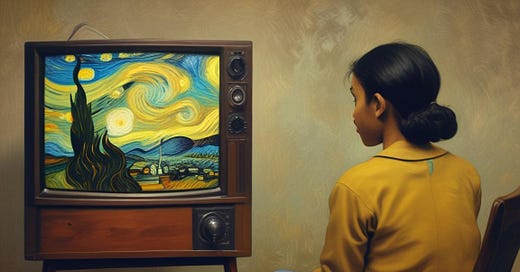Hi! This is Leyla from A Day Well Spent, a newsletter seeking pathways to more purposeful living.
What subscribers received recently:
An honest ‘day in my life’ — for a work day and a rest day
How I grew kilos of raspberries from a tiny space
A conversation with Emma Gannon on creating everyday joy
If you enjoy this piece please let me know by tapping the ❤️ at the top or bottom or by forwarding it on — thank you.
A colleague and I recently got chatting about what we get up to at home. In response to me telling him I don’t watch TV, he bemused, ‘So what do you do in the evenings?’ Ironically, this conversation happened on set whilst filming an episode of MasterChef.
I found the fact that he couldn’t fathom the idea of doing something other than watching the box after dinner a telling commentary on modern society’s relationship with the television.
Sure, I might not watch TV today. But that hasn’t always been the case – far from it.





